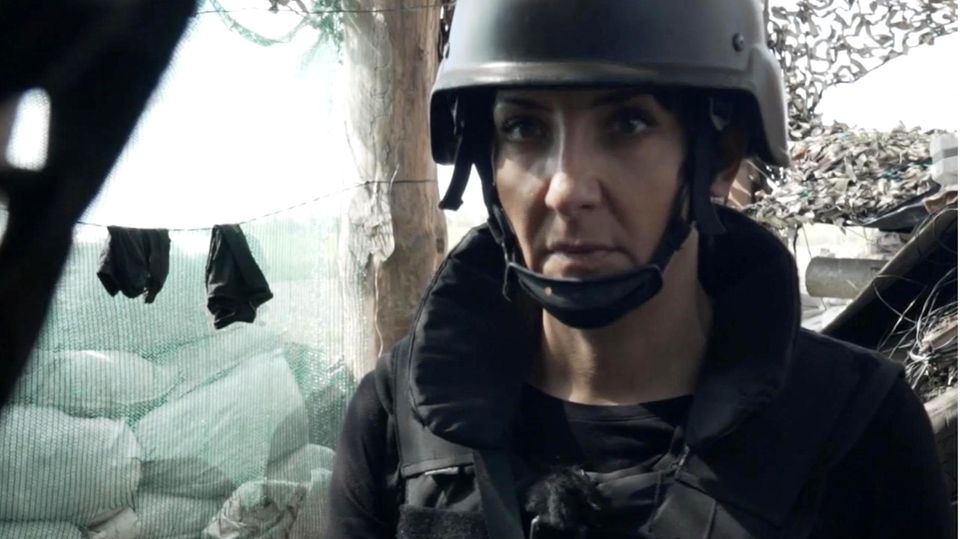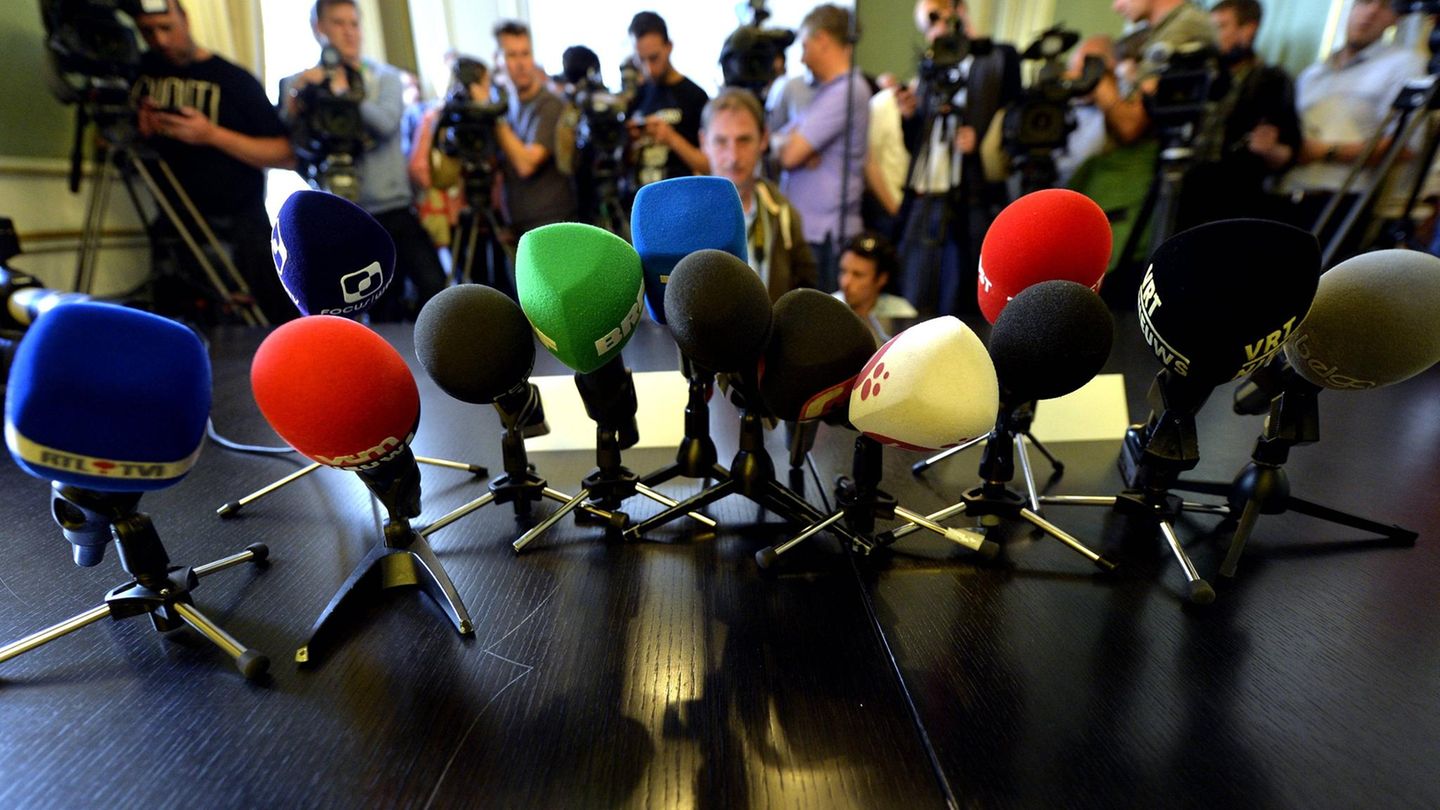With a new law, the EU Commission wants to protect press freedom in Europe more – and thus also democracy. The new law should primarily target EU countries such as Hungary and Poland. Why is?
The EU Commission wants to protect media freedom in the Union with a new law. European media – public and private – are to be protected from state influence. Vice President Vera Jourova and Commissioner Thierry Breton presented the plans in Brussels on Friday.
According to the draft law, a new European Media Council is to be established. The body of representatives of the member states aims to prevent excessive concentration in the industry. The tools of the new media law are designed to prevent the state from controlling a medium – either through political nominations in supervisory bodies or through covert funding, the news site reports.
“We want to destroy non-functioning systems in the member states,” said Justice Commissioner Vera Jourova. Instead, it is about stronger protection of media freedom. Public service media would have to be adequately financed and state advertising would have to be awarded transparently. “The public service media must not become a party propaganda channel,” Jourova warned.
Media in Europe should become more transparent
Internal Market Commissioner Thierry Breton stressed that Brussels does not want to take control of large media groups. Rather, it is about “protection at EU level to ensure diversity and to protect private or public media from interference”. National supervisors have the final say on media concentration issues, he said.
Above all, the new law would oblige media organizations to become significantly more transparent. The media would have to disclose who they belong to directly or indirectly and who their shareholders are, reports “Politico”.
This clarity is “critical” for readers and viewers to identify and understand potential conflicts of interest so they can form a well-informed opinion, officials said in the draft. This is a prerequisite “to actively participate in a democracy”.
Poland and Hungary in the focus of the EU Commission
With the new law, the European Commission has Hungary and Poland in particular in mind. In Hungary in particular, the Commission currently sees freedom of the press as restricted. This is supported by the organization Reporters Without Borders (RSF). Hungary ranks 85th out of 180 worldwide. Since Prime Minister Viktor Orbán came to power in 2010, he and his Fidesz party have gradually brought the media under their control.
Public service broadcasting and the news agency MTI are centralized in a state media holding. “Important critical media were shut down, large news portals were taken over by entrepreneurs close to Orbán and editorially brought into line,” said Reporters Without Borders. The reach of independent media is limited. An announced advertising tax could hit and weaken media critical of the government in particular.

Independent media weakened in some EU countries
Alongside Hungary, Poland has also stepped up efforts to control the media – amid a row with Brussels over the rule of law in the country. Poland is ranked 66th by Reporters Without Borders.
that the ruling national-conservatives have converted public broadcasting into their mouthpiece. They also criticize the project of “repolonizing” the media. This means pushing foreign investors back from the media market. In 2020, for example, a state-controlled mineral oil company bought the Polska Press publishing house. This in turn owns a large part of the country’s regional newspapers. After that, according to the RSF, several editors-in-chief were fired and replaced by pro-government journalists.
Reporters Without Borders hope for “progress”
But other countries in the EU could also be affected by the new media law, for example Greece. : 108 out of 180, the worst place in the European Union. There was a recent scandal in the Mediterranean country: journalists were bugged by the national secret service. In several EU countries there are currently no national regulations to protect journalists from surveillance and the media from state control, “Politico” quotes from the Commission’s draft.
The rules would prevent governments from hacking phones and devices used by journalists and their families, according to Politico. However, it should still be possible “to use such instruments if they can invoke national security or an investigation into serious crime”.
The organization Reporters Without Borders hopes for “progress” from the initiative, as its director general Christophe Deloire explained in advance.
Criticism from publishers: “Media bondage law”
However, the new law has also been criticized. The European umbrella organizations of newspaper and magazine publishers warned against a “law on media freedom” with excessively tough conditions for media groups. The European Magazine Media Association (EMMA) and the European Newspaper Publishers Association (ENPA) emphasized that this makes necessary investments more difficult.
Vera Jourova admitted that German publishers had spoken out against any regulation from Brussels in preliminary talks. “We want to destroy non-functioning systems in the member states,” she assured. There should be no “propaganda channels for governments” in Europe. Public broadcasting, for example, seems “very robust” in Germany, even if ARD is still planning improvements.
The German Association of Journalists, on the other hand, considers the criticism exaggerated. The EU Commission’s proposal contains the right approaches to strengthening the fundamental right of freedom of the press throughout Europe, it said.
The draft law will now go to the European Parliament and the member states for deliberations. Once passed, the new regulation would take effect immediately in the 27 EU countries.
Jourova expects some resistance from the EU countries. However, it is important that the Freedom of the Media Act come into force as quickly as possible. Democracy only works if journalists have the means and the necessary protection to control those in power.
Source: Stern
David William is a talented author who has made a name for himself in the world of writing. He is a professional author who writes on a wide range of topics, from general interest to opinion news. David is currently working as a writer at 24 hours worlds where he brings his unique perspective and in-depth research to his articles, making them both informative and engaging.




